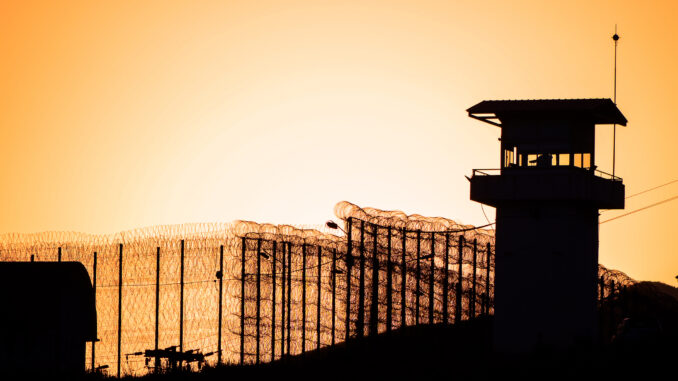
Judge Grants TRO Over ‘Illegal’ Strike
By Hank Russell
In order to secure the state’s correctional facilities while correction officers walk off the job, Governor Kathy Hochul signed an executive order on February 19 to deploy 3,500 National Guard troops. The Order also provides authority for additional overtime compensation for correction officers and other staff who are reporting for duty and actively working to secure the facilities.
Additionally, Hochul also directed the Department of Corrections and Community Supervision and the Office of Employee Relations to retain independent mediator Martin Scheinman to help bring a quick and immediate end to what the governor referred to as an illegal work stoppage. Earlier today, a judge granted a temporary restraining order mandating striking correction officers to end the work stoppage.
The state also filed an injunction under the Taylor Law, in which public employees are forbidden to strike and those who do may face fines and other disciplinary measures.
“These disruptive and unsanctioned work stoppages by some correction officers must end as they are jeopardizing the safety of their colleagues, the prison population, and causing undue fear for the residents in the surrounding communities,” Hochul said. “While I am confident we will resolve this illegal strike, I am grateful for the thousands of correction officers and staff that are continuing to report for duty – I thank them for their continued service and for doing the right thing.”
According to news reports, the work stoppage began at Collins Correctional Facility. Since then, correction officers have left their jobs at the Attica, Wende, Lake View and Groveland Correctional Facilities, among 25 state prisons. The guards have made the following demands, among them:
- Mandatory body scans for visitors
- Scanning incoming mail to inmates
- $5,000 bonus for new employees
- No overtime mandates
- Reversal of the Humane Alternatives to Long-Term Solitary Confinement (HALT) Act
In response, the state’s Department of Corrections and Community Supervision (DOCCS) stated, “The striking correction officers have made demands that would require changing laws and violating their own collective bargaining agreement.”
The HALT Act demand has been pushed by officers and elected officials alike. It restricts the use of solitary confinement, especially for those under 21 or with mental health issues, and offers prisoners alternative rehabilitative techniques that do not involve incarceration.
According to Assembly Minority Leader Will Barclay (R,C,I-Pulaski) since the HALT Act went into effect, assaults on prison staff by inmates has gone up 76%. “This policy isn’t simply misguided,” he said. “It’s malpractice.”
Louis Viscusi, president of the Suffolk County Correction Officers Association, said, although he does not agree with the officers’ actions — “a violation of labor law,” he said — he understands their frustrations. “The short staffing can be really draining. You have people working 14 to 16-hour shifts. They’re at their wit’s end. … It’s a shame.”
Like the corrections officers at the upstate facility, the officers in Suffolk “are regulated by the same policies” that results in “dangerous work conditions,” Viscusi said. “I just hope they can come to a resolution.”

